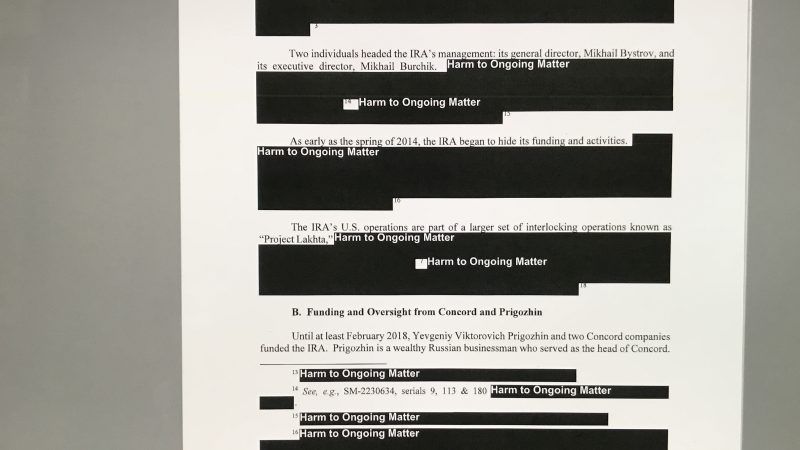Think Trump's Attacks on Journalism Are Bad? San Francisco Cops Literally Raided a Reporter's Home.
Actions speak louder than words. Trump 's labeling of the media as "the enemy of the people" is bad, but he's not breaking into reporters' homes to find leakers. That's what the San Francisco Police Department did.

Reporters have long denounced Donald Trump's "war on journalists" given the president's routine Twitter attacks about "fake news," his kind words about authoritarian rulers who have abused the media, and his idea to "open" libel laws so politicians can more easily sue publications. He praised a congressional candidate accused of assaulting a reporter. "Any guy who can do a body slam—he's my kind of guy," Trump said at a 2018 Montana rally.
"In Donald Trump's America, the mere act of reporting news unflattering to the president is held up as evidence of bias," intoned a 2017 Los Angeles Times editorial. "Journalists are slandered as 'enemies of the people.'" The American Prospect complained last October that "the president is dehumanizing journalists on the campaign trail and priming his base for more assaults on the First Amendment."
As a journalist, I'm likewise disgusted by Trump's words and believe they could incite his angriest supporters. He's playing with fire, but the president hasn't actually done anything to abridge press freedom, even if we fear what he might like to do. It's all words and bluster. Frankly, those concerned about this "war" should hope that Trump doesn't take lessons from several disturbing recent actions against reporters here in California.
The latest example came in Democratic San Francisco, but the scene isn't particularly uplifting of the city's oft-touted liberal values. After the unexpected death of the city's elected public defender, Jeff Adachi, a freelance reporter secured a copy of the related police report and apparently sold the information—some of it pretty salacious—to news outlets. The San Francisco Police Department wants to find the source of the leak.
"Police used a sledgehammer to try to get into (the reporter's) home and office and cuffed him for hours as they searched and subsequently removed dozens of cameras, cellphones, computers and other equipment used to gather news," the Associated Press reported. Police are trying to figure out his role in getting the report. The AP notes that it's not illegal for reporters to receive or publish information, even if it were improperly obtained by a third party. Police reports are supposed to be public records.
This is a heavy-handed approach to a leaked document. "The impact of trying to criminalize disclosure of public records, whether or not it violated internal policy or practice, will have a profound effect on public employees' willingness to disclose public records," said attorney Duffy Carolan, quoted by AP. This is more chilling of free speech than some ill-tempered presidential tweets.
I'm not the first person to notice the irony. In his recent column, CALmatters' Dan Walters noted that if something similar happened at the federal level, "Democratic politicians and civil libertarians would erupt in outrage at a heavy-handed government act intended to discourage journalists from delving into areas that officialdom considered off-limits." Indeed. There has been criticism, but nothing compared to the "Trump's war on journalists" rhetoric. What gives?
Walters also pointed to an ongoing case that, in my estimation, is far more disturbing than the San Francisco raid. Early in the year, reporters from UC Berkeley's Investigative Reporting Program made a public-records request to the California Commission on Peace Officer Standards and Training for a list of the 12,000 California police officers, police applicants and former officers who were convicted of crimes, many of them serious. POST did the right thing and provided the records.
When California Attorney General Xavier Becerra found out, he threatened to criminally prosecute the reporters unless they destroy records that were provided by a public agency. Becerra claims the information is confidential even though it involves public records about official verdicts. And to reiterate, state law forbids prosecution of reporters merely for receiving records—and they received the info from an agency within Becerra's own department.
U.S. Attorney General William Barr has been accused of behaving like Trump's personal attorney rather than an impartial top cop regarding the Mueller report. But Becerra makes Barr look like a font of impartiality by contrast. A close ally of police unions, Becerra is shielding records that are uncomfortable to police even though the records protect public safety. Shouldn't you get to know if the cop pulling over your wife on a dark highway has a rap sheet?
Beyond threatening to prosecute reporters, Becerra has refused to fully comply with a new law that requires the release of police disciplinary records. Becerra doesn't attack the media with words, of course, but his actions speaker loudly. This isn't anything new, either.
Becerra has pursued criminal charges against reporters who produced embarrassing undercover videos of Planned Parenthood back in 2015. The Times, which criticized the reporters' message and methods, nevertheless called the prosecutions a "disturbing overreach." But there's too-little coverage of that situation. There's no defense of President Trump's most vile anti-media rhetoric, but we should be even more upset at actions that are much worse.
This column was first published in the Orange County Register.


Show Comments (49)